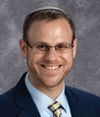Just How Lonely?
Kohelet Yeshiva High School’s Beit Midrash enjoyed the exquisite honor of hosting Rabbi Lord Jonathan Sacks on Monday, March 16. Rabbi Sacks’ visit began with an inspirational talk to our students, continued with an address to some forty supporters, and culminated in a public conversation before a maximum capacity of some 450 guests.
One recurring theme in Rabbi Sacks’ visit is particularly appropriate for Yom Hashoah: combating the surge of global antisemitism. Rabbi Sacks repeatedly stressed the importance of forging partnerships, particularly with fellow members of the faith community. Generous estimates count global Jewry at fourteen million; other faith communities number in the billions. If we wish to emerge victorious against global antisemitism, we must march arm-in-arm with our allies. It is our grave responsibility, therefore, to seek out friends on college campuses, in interfaith settings, among the political class - in short, anywhere and everywhere - to expose and expunge the scourge of twenty-first century Jew hatred.
By sharp contrast, consider Rav Soloveitchik’s description of the Destiny of Fate in his classic essay Kol Dodi Dofek:
This sense of a fate-laden existence of necessity gives rise to the historical loneliness of the Jew. He is alone both in life and death. The concept of a Jewish burial-plot emphasizes the Jew's strange isolation from the world. Let the sociologists and psychologists say what they may about the incomprehensible alienation of the Jew. All their explanations are naught but vain and empty speculations which do not shed any intelligible light on this phenomenon. Jewish loneliness belongs to, is part of, the framework of the covenant of fate that was made in Egypt. In truth, Judaism and separation from the world are identical ideas. Even before the exile in Egypt, with the appearance of the first Jew – our father, Abraham – loneliness entered our world. Abraham was lonely. He was called Abraham the Hebrew, Avraham ha-Ivri, for "all the world was to one side (ever echad) while he was to one side (ever echad)" (Bereishit Rabba 42:8). When Balaam saw the Jewish people dwelling tribe by tribe, he apprehended the mystery of the solitary mode of Jewish existence and proclaimed in a state of amazement: "Lo, it is a people that shall dwell alone, and shall not be reckoned among the nations" (Bamidmar 23:9). Even if a person achieves the pinnacle of social or political success, he will still not be able to free himself from the chains of isolation. (Kaplan’s translation, pgs. 81-2; see here as well.)
The Rav’s emphasis is on isolation, not relationships; independence, not bridge-building.
At first glance, then, we are confronted with rather divergent views concerning the implications of chosenness. How much trust should we place in our gentile allies? How much effort ought we invest in bridge-building? Theologically, is modern antisemitism meaningfully explicable in rational, historical terms?
Upon further reflection, however, it’s not entirely clear that the two truly disagree. There are, after all, numerous differences between the context of their respective remarks, which might blunt the argument for argument. Rav Soloveitchik wrote in the wake of the Holocaust, Rabbi Sacks in relation to contemporary Islamic extremism and European antisemitism. Soloveitchik, in Kol Dodi Dofek, directly addressed the American Religious Zionist community; Sacks, living in a flatter world, is broadcast to a global audience, no matter who might be in the crowd. Soloveitchik was at times outspoken and fiery, Sacks gentler and mellifluous. Soloveitchik was first and foremost a rosh yeshiva, Sacks a public intellectual. In short, the two lived in different times and places, and were responding to the exigencies of rather distinct circumstances. Arguably, the discrepancies are largely due to differences in context, tone and audience, as well the messages they felt it important to convey.
When stood up side by side, moreover, the two presentations perfectly encapsulate the twin messages of Yom Hashoah. As Rav Soloveitchik stressed, to live as a Jew in the world is to necessarily be subject to unconscionable barbarism. Today we remember all those who gave their lives simply for being bound to the covenant of fate. And yet, as Rabbi Sacks reminds us, Yom Hashoah demands a second response. As antisemitism reaches a pitch not seen since the days of World War II, all people of good will must march together against the scourge of hatred that threatens our people and so many others - in Europe, Israel and throughout the world.
